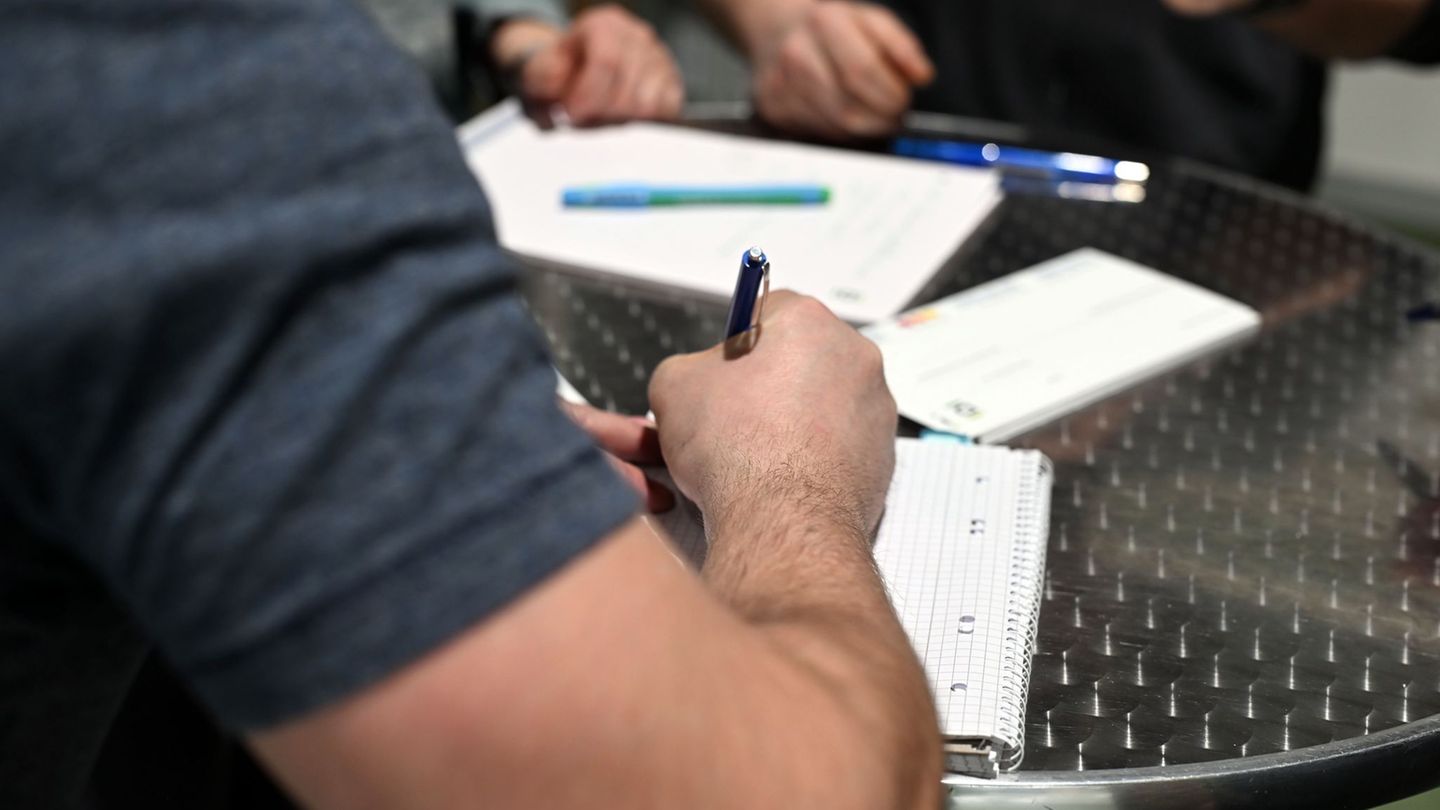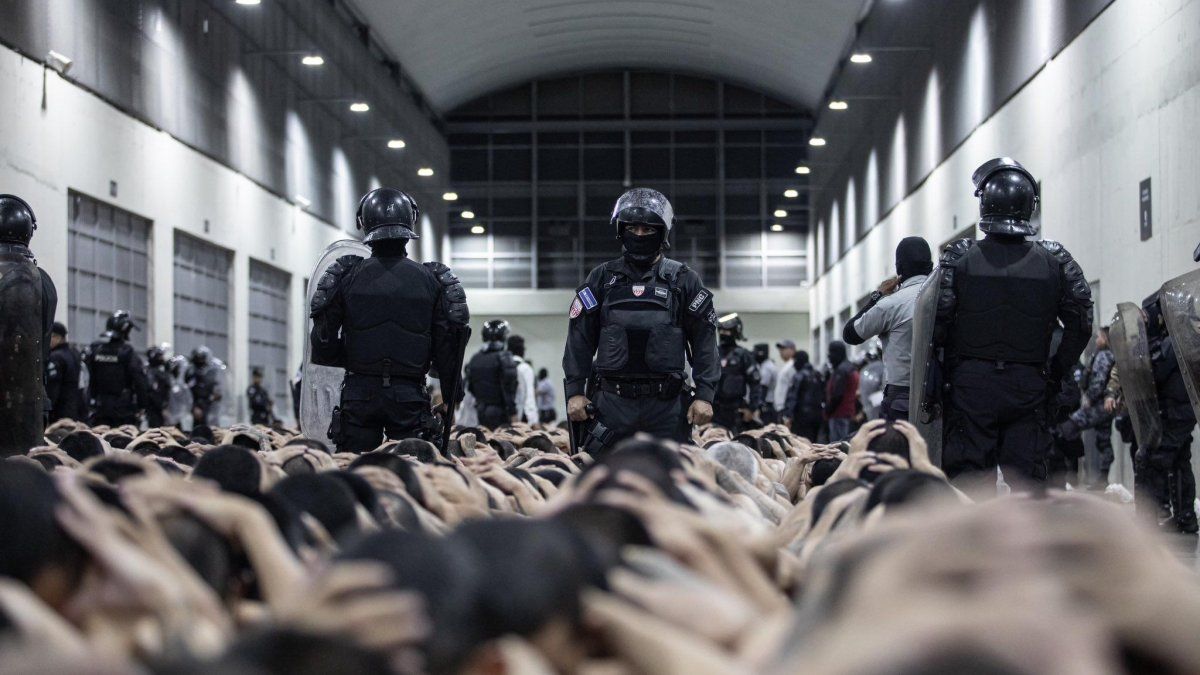Atze Schröder has been committed to serious issues for many years and has now visited a project supported by Aktion Mensch.
For almost 30 years, Atze Schröder (59) has been one of the most successful comedians in Germany. For some time now, he has also been showing his thoughtful side. His emotional appearance on Markus Lanz’s (55) talk show around four years ago, in which he apologized to a Holocaust survivor, was one of the impetus. The comedian then thought that there might be more, “besides this pure comedy world, to which I can say something,” he explains during his visit to an inclusion company supported by Aktion Mensch.
This also includes his joint podcast “Betreutes Fühlen” with the psychologist Leon Windscheid, in which profound psychological topics are presented in an understandable and entertaining way. In the interview he talks about his commitment, but also about his future on Germany’s comedy stages on the occasion of his 30th anniversary.
You have just visited the Wälderhaus in Hamburg, which is supported by Aktion Mensch – an inclusive business with a hotel, restaurant, exhibition and conference rooms. What was your impression?
Atze Schröder: The first impression when you come in from outside is this beautiful facade made of larch wood and the unusual architecture. And inside, this continues with the themes of forest and wood – the forest exhibition is very impressive. But there is a very special atmosphere here in general – especially because people with and without disabilities work together as a team on an equal footing and give visitors such a friendly welcome.
Do you personally have contact with people with disabilities?
Schröder: Yes, there are people with disabilities in my family too. We have no fear of contact and there are no inhibitions or tensions.
What is your view on inclusion in the entertainment industry?
Schröder: Things are moving, you have to say that, that’s for sure. If I stick to my classic stand-up scene, we now have the first stand-ups who are addressing their own disability. Karl Josef comes to mind, who is in a wheelchair and has developed a very specific joke based on his experiences, which also gives it a certain impact. Or Tony Bauer, who has a chronic illness and sees himself as an identification figure. He comes from the Ruhr area and has a typical, very down-to-earth sense of humor, which I think is great.
Next year you have two anniversaries coming up. You’re turning 60 and you’re celebrating your 30th stage anniversary. Have you planned anything special yet?
Schröder (laughs): I almost said for my funeral. No, I’ll just ignore that. I’ve been asked several times because that’s a typical age at which people start thinking about retirement. I’ll carry on until I’m 85 and then I’ll probably increase my workload.
You are also devoting yourself to more and more serious topics. For example, you have the podcast “Betreutes Gefühlen” together with the psychologist Dr. Leon Windscheid. How did this change come about?
Schröder: There were several events. One time, there was this meeting with Leon, who works in the same agency as me. An employee came up with the idea of bringing us together because she thought that these are two very different worlds and there must be a certain tension. And then Leon and I had breakfast together and at first we didn’t think very highly of each other. But this has now developed into a really loving friendship.
Your family history, which you addressed in your autobiography “Blauäugig” (Blue-eyed), has also made headlines in recent years.
Schröder: During my first podcast appearance, Matze Hielscher got me to talk more than I actually wanted to. And there was such a positive response. And just two weeks later I was on Markus Lanz’s show, where I met Eva Szepesi, who was in Auschwitz at the age of 15 and survived the Holocaust. Her daughter is about my age and we sat next to each other on Lanz and I thought, now the victim’s child is sitting next to the perpetrator’s child. Because as a member of the German Wehrmacht, my father was a perpetrator in the broadest sense. Then there was this famous scene where I knelt in front of Eva Szepesi, without having planned it, and apologized.
A very special moment for you?
Schröder: Yes, because firstly I hadn’t planned it and secondly she took my hand and whispered in my ear: “This means a lot to me.” There was a huge response. Some newspapers in Israel even wrote about it. And then I thought, maybe there is more to this world of comedy that I can say something about. Up until then I had always thought that my thoughts on it were completely uninteresting. And that’s how it came about.
What other plans do you have for the future?
Schröder: I’ve already said that I’ll continue for at least another 25 years. There’s so much going on around me that inspires me. I’m only just starting the program “The Redeemer,” but I’m already collecting money for the next programs that are yet to come.
Source: Stern
I am an author and journalist who has worked in the entertainment industry for over a decade. I currently work as a news editor at a major news website, and my focus is on covering the latest trends in entertainment. I also write occasional pieces for other outlets, and have authored two books about the entertainment industry.




